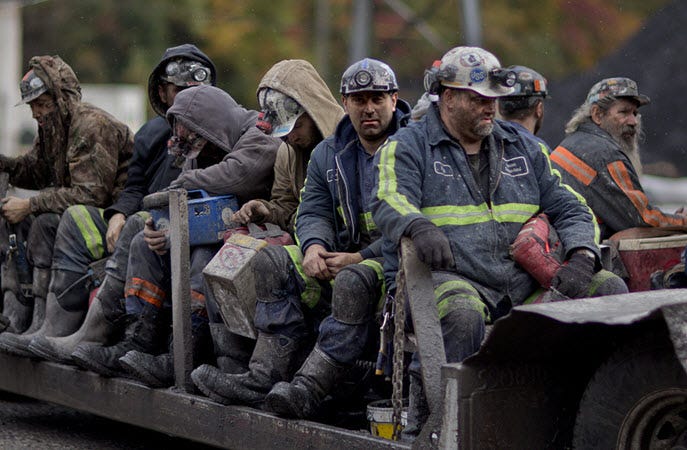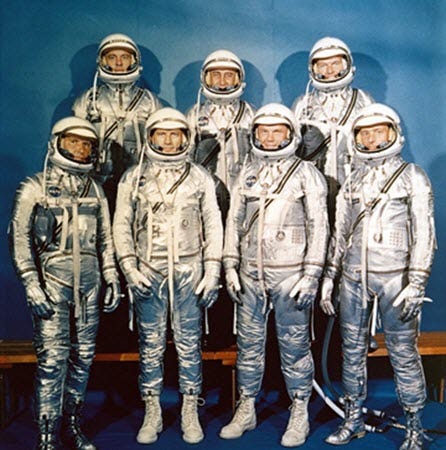This past November NASA launched Artemis 1, the first mission of the Artemis moon exploration program. Of note, a main objective of the Artemis program is to include a woman on the next crew that walks on the moon.
In recognition of this first Artemis launch, and in anticipation of the first woman on the moon, Netflix recently re-released its 2018 Mercury 13 film, a feminist-slanted documentary about 13 American women pilots who participated in a privately-funded program not affiliated with NASA to test women for space flight.
As should be expected after 50 years of feminist political and cultural indoctrination, the film presents these 13 women as victims of rampant sex discrimination that prevented them from sharing the glory of space flight with men, completely ignoring important facts about the early history of manned space flight.
The film’s gender bias is evident from Netflix’s tagline for the movie:
After rigorous testing in 1961, a small group of skilled female pilots are asked to step aside when only men are selected for spaceflight.
And here’s the Critic’s Consensus on Rotten Tomatoes review of the film:
Mercury 13 offers yet another sobering example of how institutionalized sexism has thwarted countless dreams — and held nations back from their full potential.
Normally, I would have ignored this film and its feminist-inspired perspective as just another of thousands of similar films, newspaper columns, magazine articles, and TV segments that have effectively served as feminist propaganda for decades.
However, as part of my primary goal to challenge The Washington Post’s longstanding gender bias, I’ve been writing letters to Post columnists who have written gender-biased articles. In doing some research in preparation to write a letter to the Post’s gender columnist, Monica Hesse, I learned a lot about the Mercury 13 program.
And it completely demolishes the feminist-slanted story told by the Mercury 13 film. Here’s a short summary of the points made in my letter to Hesse:
1. What both the movie and Hesse’s article overlooked
NASA’s requirement that the original astronauts have test pilot experience removed all 13 female candidates from consideration. It wasn’t sex discrimination that blocked these women, it was a requirement made necessary by the nature of very early space flight: the astronauts would need to be able to “pilot” what were essentially hazardous experiments in spacecraft design.
But what both the movie and article conveniently overlooked is the underlying reason why these 13 women didn’t have test pilot experience: for all of human history women have been protected from many of the burdens and extreme dangers placed only on men.
In particular, women have long been safe from hazardous military service that ultimately produced NASA’s male‑only military test pilots.
2. The early space program was no place for novices or women without test flight experience.
Two near-disasters in space that were averted only by Neil Armstrong’s many years of test flight experience clearly show why these women were rightfully excluded from the Mercury program:
Armstrong’s first trip to space nearly ended catastrophically:
“Armstrong himself encountered near-disaster during his first space mission, Gemini 8. After a critical onboard failure, Armstrong and pilot David Scott began spinning out of control in space. After struggling to resist blacking out, Armstrong eventually regained control and landed safely.”
What if it had been two women without test pilot experience flying in Gemini 8?
We would have had two dead women floating in orbit around the earth.
Armstrong had to manually land the lunar module Eagle during the final descent to the moon’s surface:
“‘Give us a reading on that program alarm,’ Armstrong said. He sounded tense, but no more so than during the simulations. It was hard to grasp that a life-or-death struggle was playing out 240,000 miles (386,000 kilometers) from Earth, in a small, fragile machine descending rapidly to the moon. Communications were spotty; the computer was threatening to quit, and Gene Kranz, the flight director for this first lunar landing, felt Mission Control slip a bit further behind the power curve.”
What if it had been two women without test pilot experience landing on the moon?
We would have had the corpses of two women still sitting on the moon some fifty years later.
3. Both the movie and Hesse’s article omit some really interesting details.
First, as described in an Atlantic magazine article, The Soviet Space Program Was Not Woke, the Russians put the first woman in space only because they became aware of the renegade Mercury 13 program.
“The effort to bring women into the Soviet astronaut corps began when Nikolai Kamanin, the head of cosmonaut training, heard [about the wayward Mercury 13 program].
“We cannot allow that the first woman in space will be American,” Kamanin wrote in his journal. “This would be an insult to the patriotic feelings of Soviet women.” …
“Kamanin couldn’t have said it any more plainly. The impetus was nationalistic — any [gender] egalitarian impulse was in service of that primary motivation. Soviet women would fly to space for one of the same reasons that the rockets carrying them did: to beat their Cold War enemy.”
Second, both the film and article omitted the real motivation for the wayward Mercury 13 program — it wasn’t for gender equality!
The real reason is described in another Atlantic article, Why Women Weren’t Allowed to Be Astronauts:
“[Dr. William Lovelace, the founder of the Mercury 13 program] may sound progressive for his time, but his reasoning for including women wasn’t. Lovelace imagined a future full of space stations circling Earth, carrying people busy at work. ‘He was thinking that if you’re going to have dozens of people on space stations, then you’re going to need secretaries, you’re going to need telephone operators, you’re going to need lab assistants — and that means you need women,’ … ‘So he’s thinking about the women for very much traditional, pink-collared, gendered jobs.’”
4. The movie exposes the hypocrisy of feminism
Why can’t people see the enormous hypocrisy when women, who have never been expected to share the same burdens as men, then self-righteously claim, almost as a birthright, to be included in the glory of space exploration?
Or the hypocrisy of being accepted to the nation’s military academies without the same draft cards required of the other “half of the population”?
Or the hypocrisy to be the recipients of a feminist-driven “preferential equality” in the nation’s colleges and universities via a twisted Title IX, where male students’ civil rights are being annulled in campus kangaroo courts in the name of “equal educational opportunity”?
Or the hypocrisy not to insist on having equal numbers of both men and women working in coal mines?
If women aren’t ever part of THIS team:

Why should they expect to be included on THIS team?

___________________________________________________________________________
This fundamental feminist hypocrisy is what’s wrong with Netflix’s Mercury 13 movie.
___________________________________________________________________________